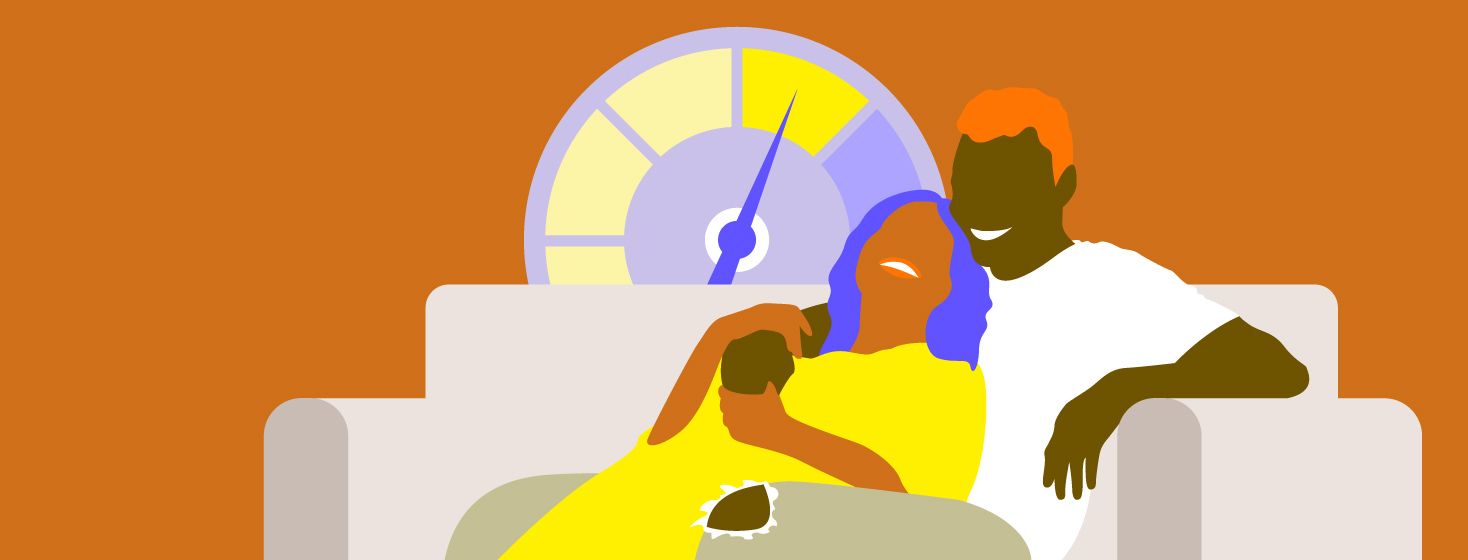The Good Enough Caregiver
For years at the end of the day, I'd sit down on the couch exhausted. I'd look over to my husband, Keegan, who was diagnosed with AS 5 years ago and think, "Did I do enough for you today, love? Did I provide you with everything you needed? Did I relieve you from fatigue and pain as much as I could?"
I always feel like I could do better
I feel so down on myself in these moments. I would fret that I didn't do enough for him. It'd make me cry or lash out at Keegan. But I realized recently that I had this kind of self-dialogue about my daughter, Kaya, too. Am I a bad mom? I discussed this with my therapist who suggested I look into Dr. Winnicott's theory of the "Good Enough Mother." Essentially, he theorized that while often society teaches mothers and parents to cater to every need of a baby, eventually the child must develop their own sense of self. Children grow and develop when the parents aren't reacting to every little thing.
Driving home that day I realized that I've also taken that kind of perspective with caregiving for Keegan. I find myself stressed for both Keegan and Kaya the same way. "Did I give you enough today? Was I present enough? Did I alleviate any pain, frustration, or suffering the day brought you?" But it's not the best way to be a mother or a caregiver.
First I identified why I felt I was an inadequate caregiver:
- I wasn't home all the time to help Keegan, who is a stay-at-home dad. I held on to guilt that he was the primary parent for our child and dealing with AS at the same time.
- I couldn't take off work every day to help him through a flare-up.
- I couldn't alleviate his pain.
- I'd get texts from him at work about how exhausted he was. My mind was with him while I tried to finish up at work.
- I put my needs in front of his sometimes.
Then I realized I can't change some things
But all of these things assumed Keegan didn't have the autonomy to change them. Why was it on my shoulders to be the only one to relieve pain? To get him through the day? I realized quickly that my assuming I was the only one, it made Keegan look like a helpless newborn. He's not. Yes, he may be suffering but sometimes he didn't need me to fix the problems. He needed someone to listen and be there with him, either in person or over the phone.
My ego was reacting. I turned a situation into a personal attack when Keegan's intent was never to show me that I was a bad caregiver. So I brought this all up to my therapist who responded with these questions. "What does it mean to be a good enough mother?" "What does it mean to be a good enough caregiver?"
So I sat down to write this article and define what it means to me.
To be a good enough caregiver:
- I actively take care of my health-physical and mental. I started running again. I meditate daily. It's impossible to take care of others when I haven't taken care of myself first.
- I am aware of my physical, mental, and emotional limits in the moment. Essentially, I know how much care I can give.
- I ask questions first to investigate instead of reacting immediately to Keegan's pain, fatigue, etc. It takes away Keegan's autonomy for me to immediately bring him medication or coffee. Instead, we start with a dialogue so I know the best role I can play at that moment.
- I communicate each day to know how much to give care. AS is such a dynamic disease that how Keegan needs me in a flare-up is drastically different than a lower-symptom day.
Since this reflection, it has completely changed my identity as a caregiver. Perhaps it's taken some maturation to get here, but it feels like a much healthier place than I was before. No longer does it feel like a burden, but an honor to provide the support Keegan needs.

Join the conversation